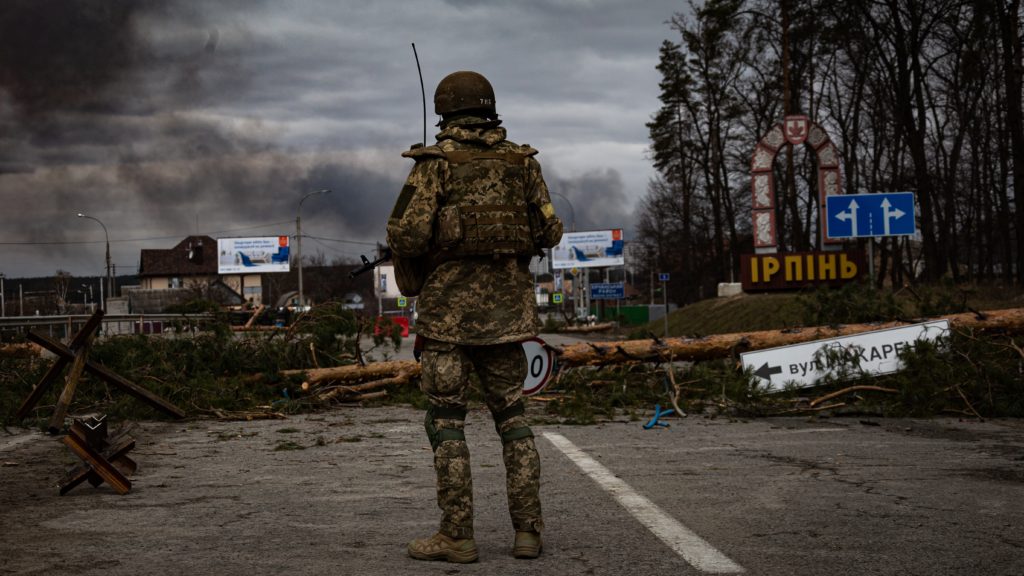The Peninsula
South Korea as a Middle Power and Russia’s Invasion of Ukraine

On 26 April, President Yoon Suk Yeol will attend a State Dinner at the White House. Before, after and even during the polite dinner conversation, one question will recur: Why is South Korea, a leading middle power, not doing more to assist Ukraine? To date, South Korea has avoided sending military armaments to Ukraine. A statement provided to Reuters in the lead up to the visit has attempted to address the issue – but still avoids making any commitment. It’s going to be much harder to continue sitting on the fence in Washington.
South Korea’s immediate reaction to the Russian invasion of Ukraine attracted substantial criticism. South Korea agreed to participate in U.S.-led sanctions, but hoped to “swiftly wrap up” consultations to enable exemptions for local firms. There is an important distinction to be made between ‘implementing’ unilateral sanctions and ‘adhering to’, ‘abiding by’ or ‘complying with’ third-country sanctions. The former is a proactive political act that attracts direct responsibility, while the latter is a reactive political act that avoids direct responsibility. The initial reaction highlighted a desire to minimize the impact on South Korea’s economy rather than deter aggression.
In the midst of this, a presidential debate demonstrated a further lack of understanding. One leading candidate blamed Ukraine and specifically President Volodymyr Zelenskyy, for Russia’s invasion (later apologizing), and the other focused on the fallout on Seoul’s finances – neither mentioned the dire need to immediately support the weak against the strong. In the hopes of demonstrating understanding and support, the then conservative candidate, now president, subsequently tweeted an image of a mandarin with an angry face and the words “We stand with Ukraine”. The sentiment was clear, and it did attract a lot of attention, but a mandarin with an angry face?
Then, in April 2022 when President Zelenskyy made a presentation to the National Assembly, only 60 of 300 legislators attended with even the National Assembly Speaker absent. Citing international support for South Korea during the Korean War, Zelenskyy drew a parallel to his own country’s situation. The failure to play a direct role in countering aggression seems perplexing given the sacrifices made to defend South Korea in its earliest years.
What happened? Why was South Korea so far behind (and awkward) in reacting to Russia’s invasion of Ukraine? Why is a leading middle power and U.S. ally not doing more?
Some have made detailed and well-argued reasons for South Korea’s position, including concerns that Russia holds significant influence over North Korea. There are three other reasons often used in the media.
The first reason is that the invasion commenced in the midst of a presidential election period and before the new administration was prepared to act. One year later, and the new administration’s rhetoric is clear. South Korea is a global pivotal power, with democracy, rule of law, and human rights as priorities. This reason hardly makes sense anymore.
The second reason is that South Korea is selling armaments to states who then supply Ukraine. It is selling weapons to Poland, who then provides aid to Ukraine. During the visit to Seoul of the NATO Secretary General, one western military official highlighted their attitude to this reason: “Anyone can sell things. The question is how much you are willing to contribute.” This reason also fails to make sense.
The third reason is that South Korea is loaning and selling armaments to the United States who then supplies Ukraine. Multiple agreements have been negotiated to allow U.S. armaments provided to Korea to be redirected to Ukraine. In the end, whether it’s selling or loaning to states that supply Ukraine, South Korea is contributing to an ongoing war. Its current policy is more concerned about refusing to make a stand and avoiding direct blame.
The challenge for South Korea is that its position on the Russian invasion of Ukraine has the potential to leave a lasting impact, again raising questions about its position as global middle power, and its commitment as a U.S. ally. What a middle power is and what it means to be a middle power is an academic debate. In the context of South Korea and the Ukraine issue, it could be interpreted in two ways.
South Korea could be a middle power – a state in the upper end of a global ranking of states, which by virtue of its status quo position in a liberal-democratic led international order is marked by a commitment to freedom, the rule of law, and collective action to deter aggression. Alternatively, South Korea could be a middle power – a state in the upper end of a global ranking of states, which by virtue of its position between rival major powers, seeks to avoid taking a position that will attract overt opposition by either side.
The former marks the aim to play a normative middle power role – think Cold War Australia, Canada, or Netherlands. The latter marks the aim to act in the middle – think Cold War Indonesia, India, or Yugoslavia. South Korea’s position on the Russian invasion of Ukraine begs the question: what kind of middle power is South Korea?
When President Yoon visits Washington, nobody will ask what kind of middle power it is. But when they ask why South Korea is not doing more to assist Ukraine – they’ll basically be asking the same thing.
Dr. Jeffery Robertson is Non-Resident Fellow at the Korea Economic Institute of America, an Associate Professor of Diplomatic Studies at Yonsei University, and a Visiting Fellow at the Korea Studies Research Hub, University of Melbourne. The views expressed here are the author’s alone.
Photo from Shutterstock.
